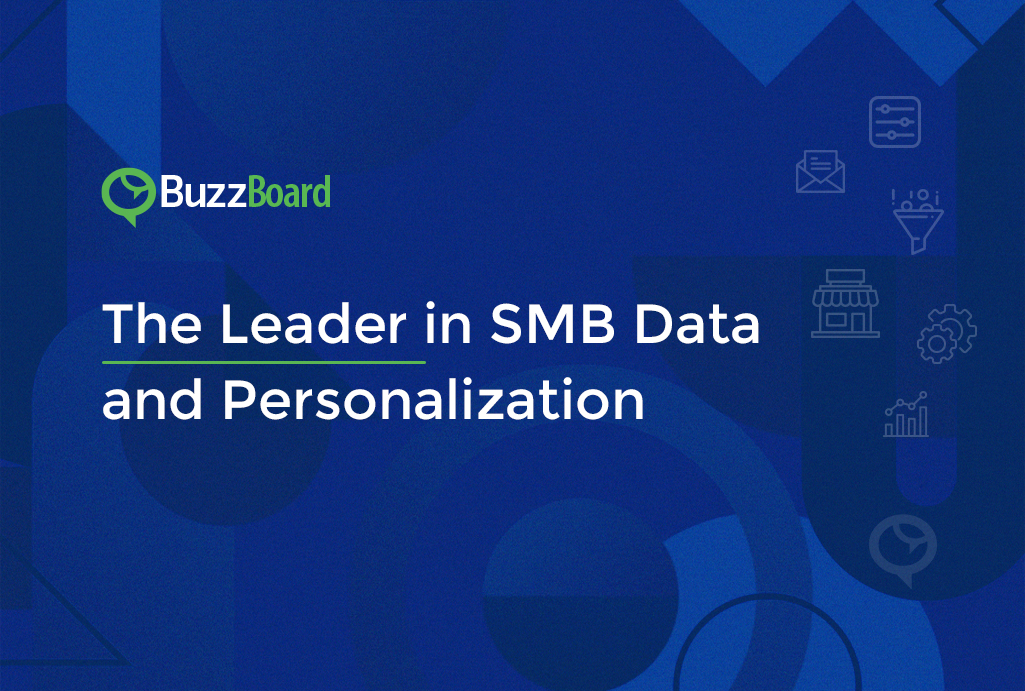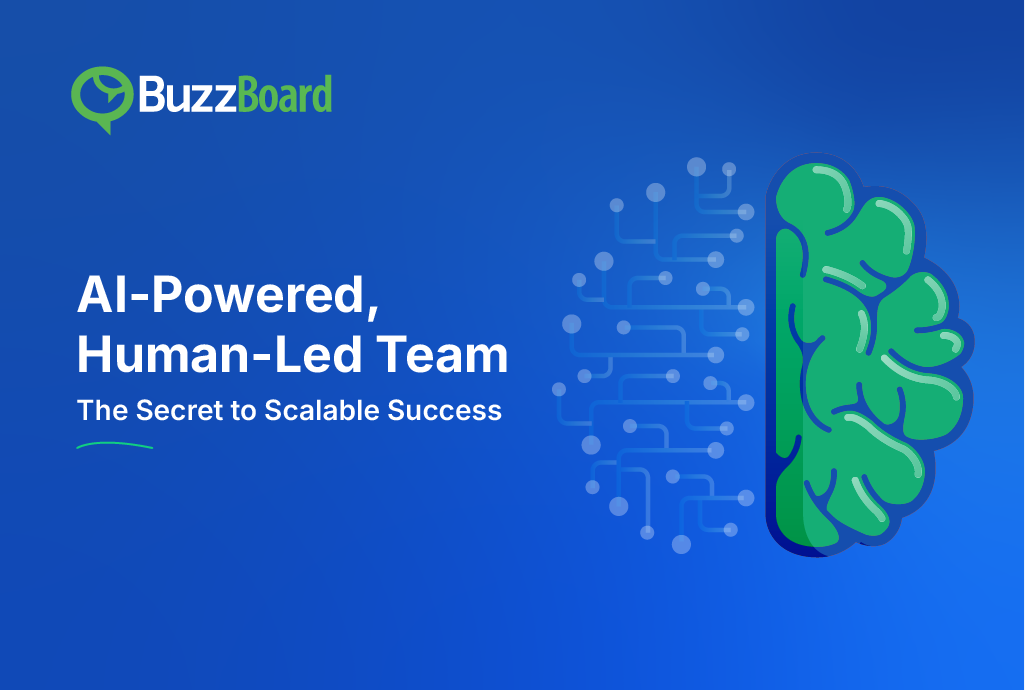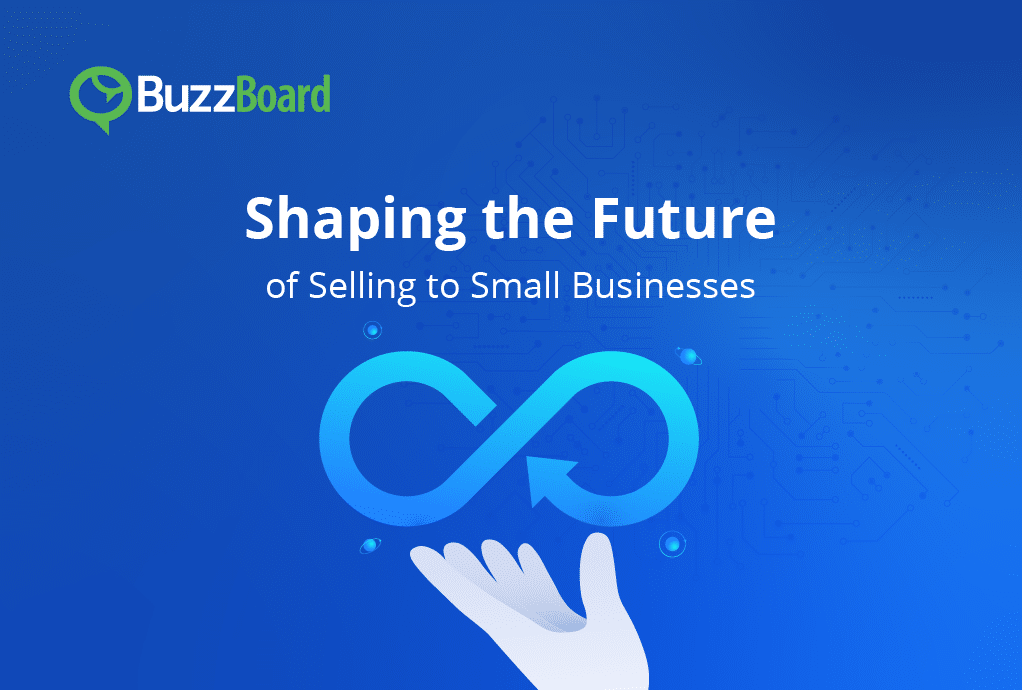 To be successful in today’s business environment sellers need to be a source of fresh information for their prospects and customers and work more like a trusted advisor — identifying business challenges at the root cause level and co-creating the appropriate solutions with the SMB owners. Sellers will have more success if they know the company, local market and industry, have deep understanding of their products, listen to and learn the needs of the client, are sincere in their approach, and can help find solutions to pain-points. In short, they need to add value to every interaction they have with prospects and customers.
To be successful in today’s business environment sellers need to be a source of fresh information for their prospects and customers and work more like a trusted advisor — identifying business challenges at the root cause level and co-creating the appropriate solutions with the SMB owners. Sellers will have more success if they know the company, local market and industry, have deep understanding of their products, listen to and learn the needs of the client, are sincere in their approach, and can help find solutions to pain-points. In short, they need to add value to every interaction they have with prospects and customers.
Customers believe that sales reps are 88% knowledgeable about products and only 24% on business expertise
— Corporate Visions
This may seem daunting, but today’s technologies have paved paths towards this more successful sales approach.
Meaningless Sales Conversations are Costly
We’ve all been on the receiving end of meaningless sales pitches. We’ve experienced the growing frustration that results from these unfocused meetings, the little value exchanged and the hours lost. The reasons these meetings occur at all are obvious: poor targeting, lengthy needs analyses that generate little value, mismatch between what the prospect actually needs and the solutions being touted, lack of seller’s understanding of the prospect’s business, and perhaps just poor salesmanship (poor listening skills, too pushy, etc.).
50% of sales time is lost on unproductive prospecting
— The B2B Lead
What’s perhaps less widely understood is the economic cost of such meetings — the hours lost in meeting preparation, travel time, meeting time, post-meeting follow up, etc. In fact, a recent study by Altify estimates the cost of “dead end” meetings to be upwards of $600 billion in the US alone.* We’ve seen other studies placing this number closer to $1 trillion. That’s a lot of valuable time wasted.
Meaningful Sales Conversations are Priceless
Conversely, meaningful sales conversations are well-informed, focused and, ultimately, energizing. Both parties quickly experience a sense of mutual understanding, collaborative problem solving and a willingness to draw from each other’s expertise. Interestingly, the reasons meaningful conversations occur are also equally as obvious, just not routinely followed: needs-based targeting; strong preparation; proper positioning of seller solutions against specific prospect needs; solid understanding of the prospect’s business, competition and local market; and good salesmanship (good listening skills, clear understanding as to where the prospect is in their buying journey, etc.).
And while orchestrating such meaningful conversations routinely may appear challenging, advances in data science, machine learning and artificial intelligence now make this possible. Needs-based targeting coupled with highly relevant, curated data and insights about every SMB is now within the grasp of sales professionals. These Sales Readiness tools, as some are now calling them, open the door to true hyper-local messaging that can be used to greatly improve targeting, secure appointments, conduct meetings and build relationships over time.
Beware of the Buyer
Recent sales methodologies that were all the rage only a few years ago are already dead. Asking good questions and asserting one’s expertise not only fall well short of what today’s SMBs owners expect, but they often result in meaningless conversations — a waste of everyone’s time and money.
Nowadays, when SMB owners make time to meet with an outside sales rep many are not willing to sit through a standard needs analysis; they expect to learn something or receive value of some kind. They assume the seller will have working knowledge of their industry, their business and the challenges they’re facing. This is a reasonable assumption, given that the seller sells products and/or services designed to solve these business problems and has experience working with similar companies, some even within the same industry. From their perspective, it’s easy to see why a prospect would expect the seller to bring fresh insights and custom solutions to bear on their unique challenges.
Nearly 57% of B2B prospects and customers feel their sales teams are not prepared for the first meeting.
— International Data Corporation
Yet many sellers haven’t caught up with this notion — they’re not doing an adequate amount of preparation about the business, local market or industry; they’re still sticking to their pitches; asking basic questions; and applying their expertise generically with little justification to back it up. In short, their not adding much value. Perhaps this is why 62% of sales meetings do not progress beyond the initial meeting.*
62% of initial meetings do not progress to the next meeting
— Altify
Challenging the Seller
To be successful in today’s business environment sellers need to be a source of fresh information for their prospects and customers and work more like a trusted advisor — identifying business challenges at the root cause level and co-creating the appropriate solutions with the SMB owners / decision makers. Sellers will have more success if they identify the needs of the prospect, know the business, local market and industry, have a deep understanding of their products, are sincere in their approach, and can help find solutions to pain-points — all before first contact with the prospect.
Leveraging Technology to Drive Meaningful Conversations
Becoming a business “expert” quickly and with such frequency may sound daunting, but today’s emerging Sales Readiness tools are significantly more sophisticated and accessible than ever before. These tools are quite capable of helping sellers deliver more value to every prospect interaction they have, even at the earliest stages of a relationship and continuing throughout the buyer’s journey. They are helping more and more sellers evolve quickly into the role of trusted advisors.
- Needs-based targeting enables them to find prospects that need exactly what they sell.
- Curated SMB reports greatly accelerate the understanding of any business, industry, and local market.
- Analytics tools compare any SMB’s technology and digital deficiencies directly against their local competitors and category benchmarks to identify opportunities.
- And highly relevant, bite-sized, custom content can even be served up for sellers, who can use it to keep their conversations with prospects going throughout the buying journey.
Armed with an understanding of a prospect’s unique needs and a host of insightful content about an SMB’s business, sellers can now architect their approach, even before first contact. For instance, they can identify insights about an SMB’s competitors that will surely get the SMB’s attention and the appointment. Or leverage detailed category data to highlight what a lagging SMB needs to do to stay competitive. Or call out certain new technology trends that create urgency and motivate an SMB to act. With curated, hyper-local data and insights about a prospect’s specific business, the potential for sellers to create more meaningful conversations is limitless.
Sales Readiness Tools – What to Look For and How to Leverage
Here’s a “30-minutes or less” sales preparation approach we at BuzzBoard recommend to our users:
- Use competitive intel to get appointments. SMBs are more interested in knowing what their competitors are doing than about the state of their own business — so find one data point that will get their attention and use it to get in the door.
- Know their business. Get a working knowledge of their business by quickly reviewing the curated and concise industry, company, competitor and consumer insights. You’ll be surprised how quickly you can get up-to-speed on any business.
- Identify their needs. Find an SMB’s deficiencies relative to its category and local competition and match against your solutions. Seeing themselves falling behind will motivate them to act.
- Architect the conversation. Focus on their needs and how best to frame your solutions around them. Identify key questions to fine tune your solution recommendations.
- Introduce Your Solutions. Which solutions can you sell now that most easily solve their problem(s), present the least risk of execution, and are as transparent as possible? Start the relationship there, build trust and co-create a long-term plan for the future. Integrate more and more of your solutions, with increasing levels of complexity, as you move forward together.
- Leverage content across the entire customer journey. Use the tool to surface broader insights about the company’s need(s), industry or solution(s) you are recommending. Use these to provide smart context, educate the prospect and reinforce the value of your solution(s) throughout the customer journey.
Implementing a sales readiness tool and an approach like this will transform meaningless conversations into meaningful ones, and that will have a major positive impact on your top line. Over time, as sellers become more adept at creating, conducting and maintaining better conversations, they will accelerate the evolution of their customer relationships and sales cycles, while improving retention. You’ll find that good conversations make for great business.
For more information about how to increase the number of meaningful conversations conducted by your sales team, please contact us.
*Altify. “Inside The Buyer’s Mind: Buyer / Seller Value Index 2016,” Nov 2016.








